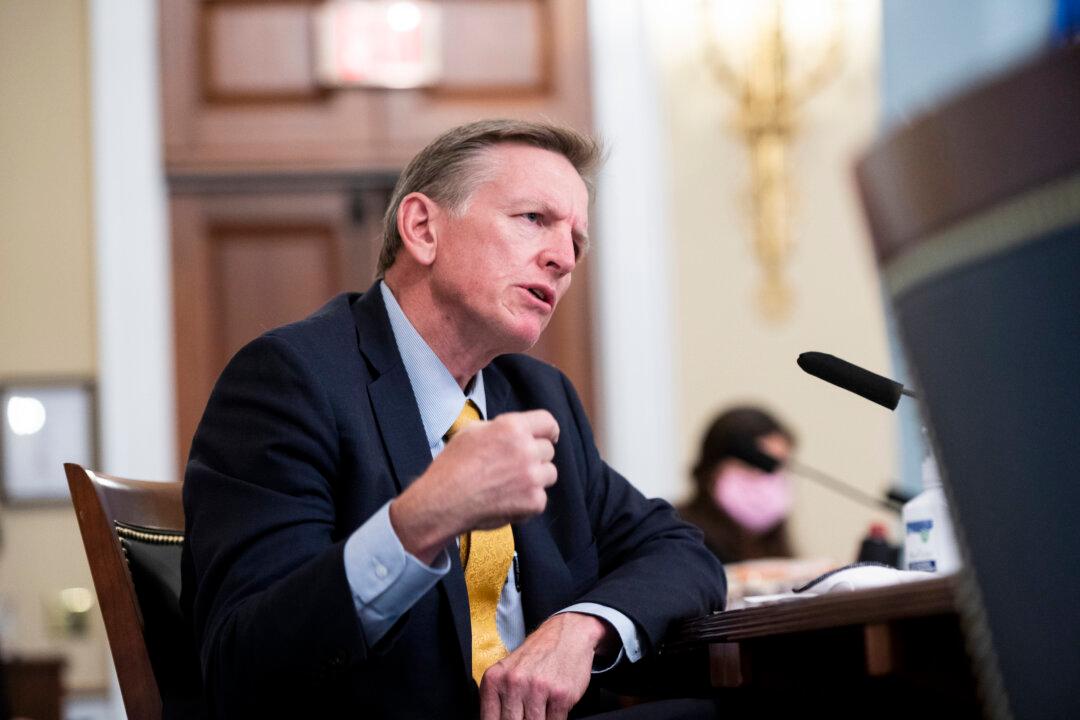The Arizona Supreme Court on Monday ruled that two Republican congressmen and a state representative should remain on the November ballot after opponents claimed they were ineligible for reelection because they actively participated in the Jan. 6, 2021 breach of the U.S. Capitol.
In its four-page ruling on Monday, the court upheld a lower court decision on the matter that found that only Congress had the power to invoke a 150-year-old law that could be used to disqualify U.S. Reps. Paul Gosar (R-Ariz.) and Andy Biggs (R-Ariz.) and state Rep. Mark Finchem, a Republican, if they had “engaged in insurrection or rebellion.”




